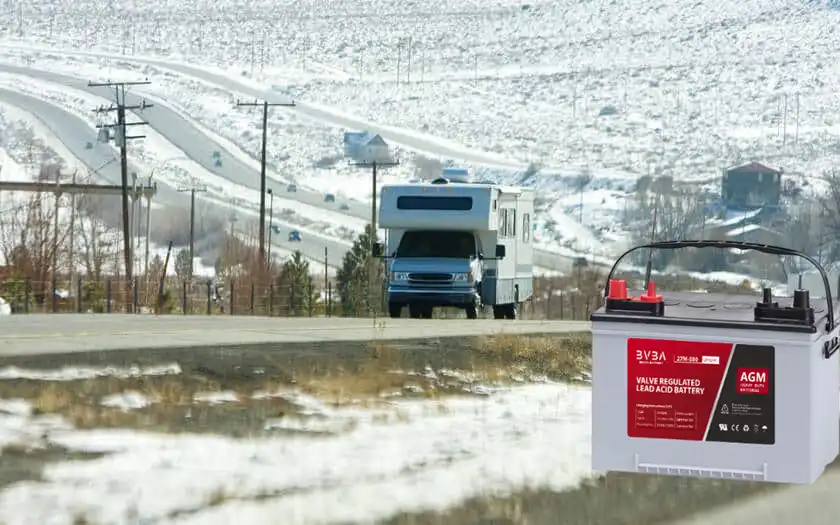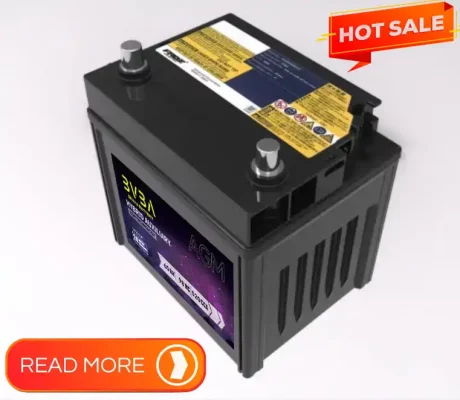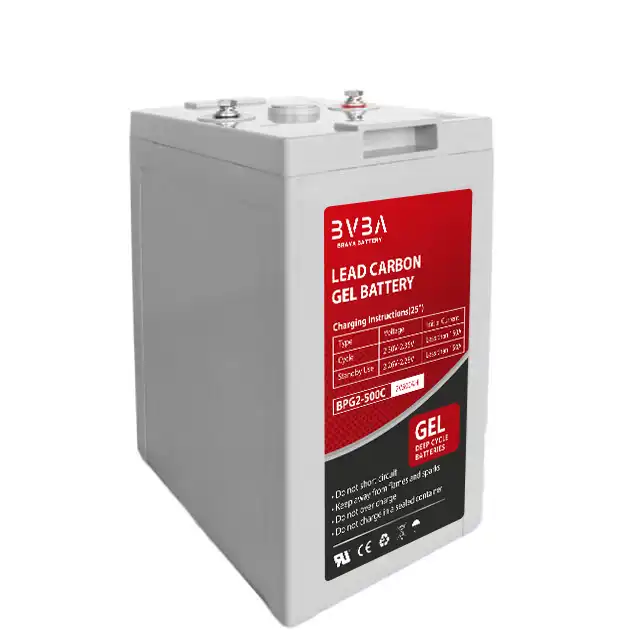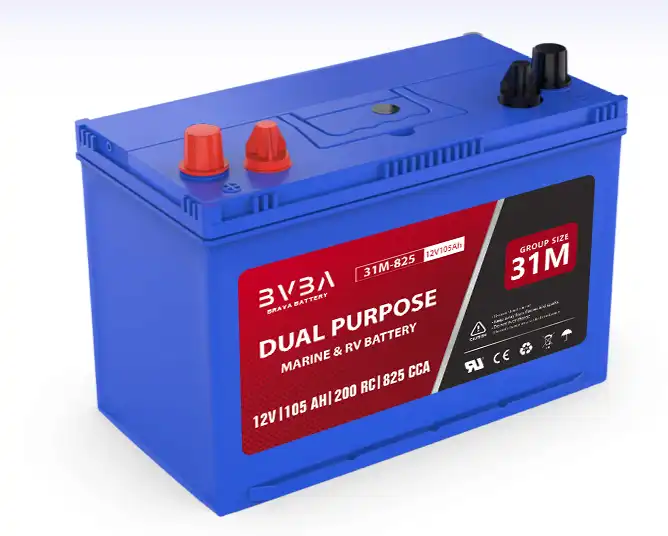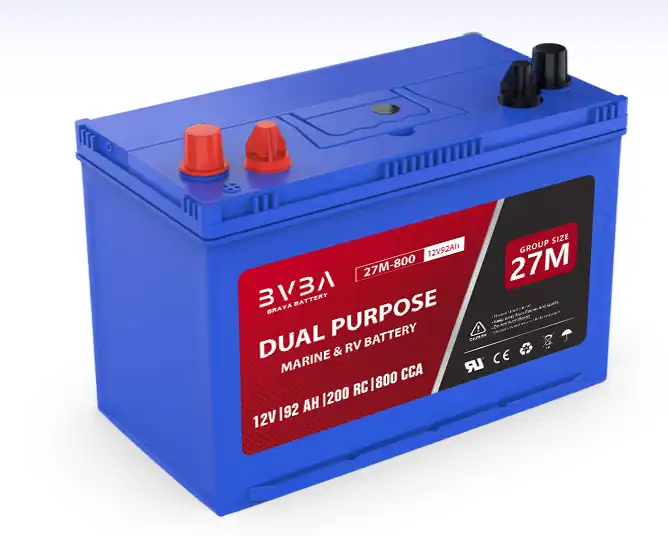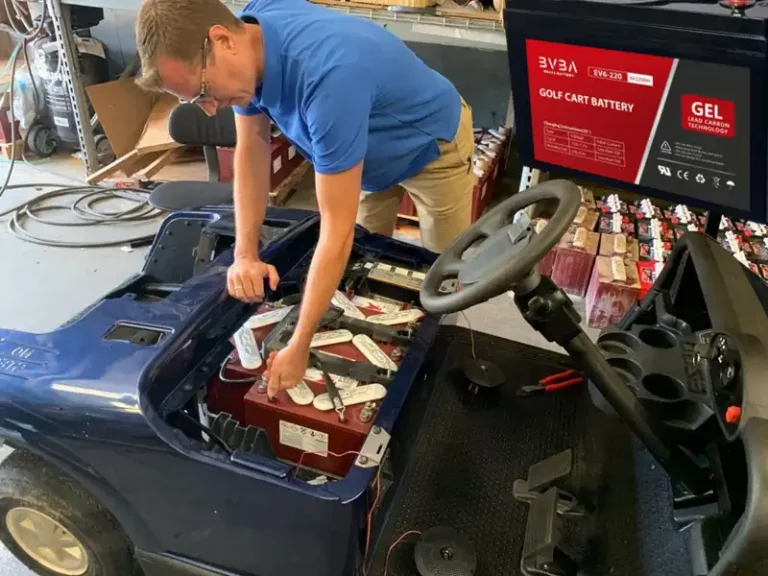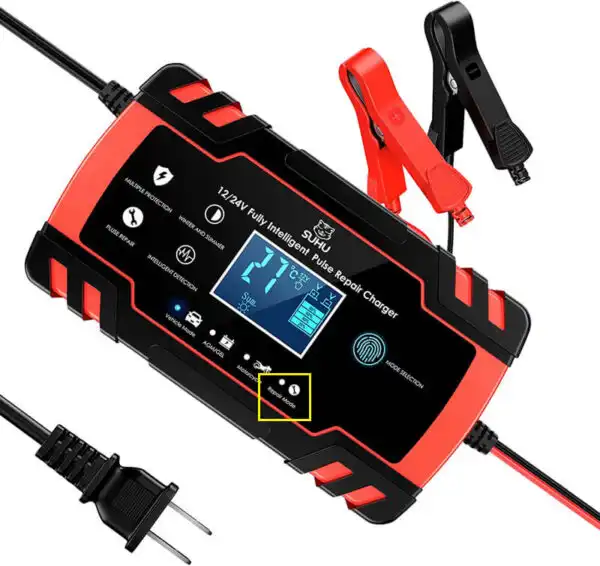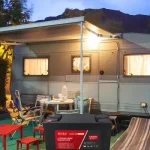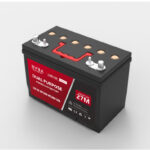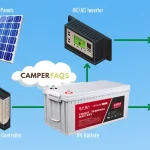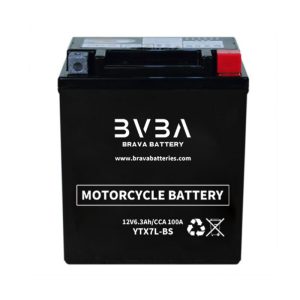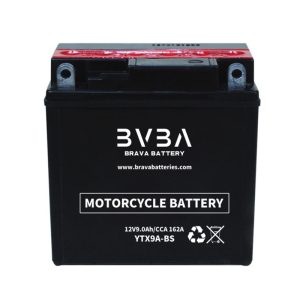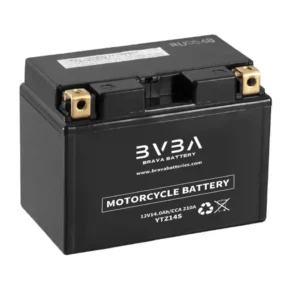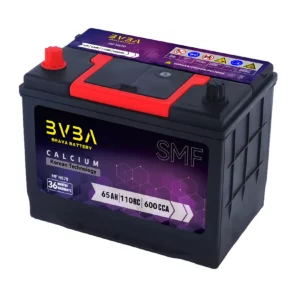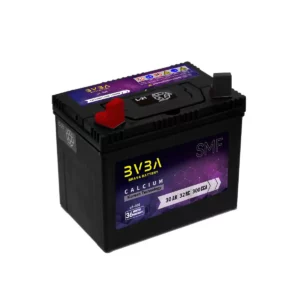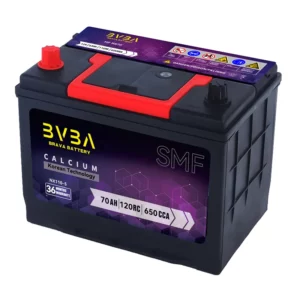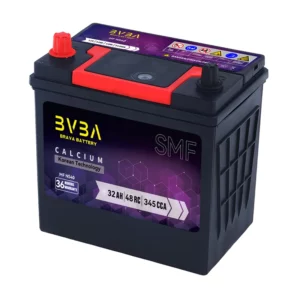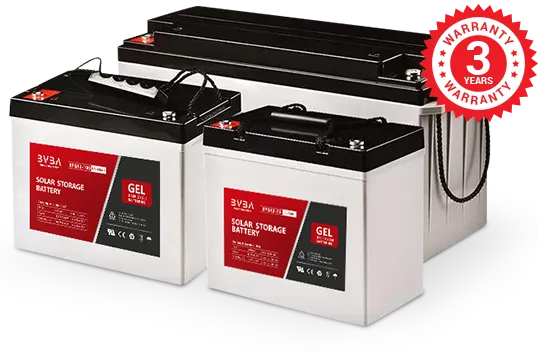What Happens To RV Batteries In Cold Weather
A rv battery’s job is to store and release energy. Cold weather can get in the way of these important functions. Just like it takes your body several minutes to warm up after being outside, the same is true for your battery. Cold temperatures increase the internal resistance of a battery. This can lower the battery’s capacity. The battery can’t release as much energy or retain a charge as well in cold temperatures.
We’re going to put it to you straight – lithium batteries fare far better in wintry conditions than other battery types, but even still you’re going to want to take care of them. With the right preventative measures, your batteries can survive and thrive this winter. To protect your batteries, let’s first look into why we need to protect them from harsh environments in the first place.
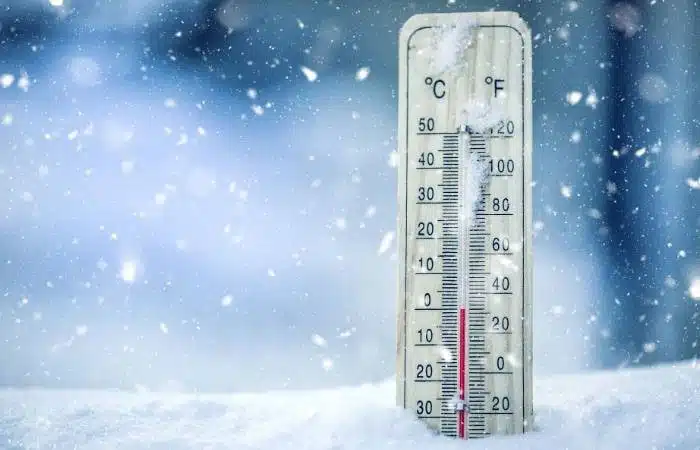
rv battery in cold winterYou guessed it -this means you’ll need to charge those batteries more frequently during wintery weather. Another important thing to remember is that the lifespan of a battery only includes so many charging cycles. This is something you want to preserve, not waste. Lithium deep cycle batteries are rated to last between 3,000 to 5,000 cycles. But lead acid, on the other hand, typically lasts around 400 cycles, so you’ll want to use those cycles more sparingly.
RV batteries play a crucial role in powering various systems in your recreational vehicle. Whether camping in the winter or storing your damage RV battery during the cold months, it’s essential to understand how temperature affects your batteries. In this article, we’ll explore the impact of cold temperatures on RV batteries, discuss whether freezing temperatures can damage lithium batteries, and provide tips on how to keep your batteries warm in the winter.
How cold is too cold to charge a battery?
The charging process becomes less effective as temperatures drop. Conventional lead-acid rv battery charging efficiency decreases significantly below freezing temperatures. At around -20°C (-4°F), the charging efficiency drops to only 50%. Many users are unaware that consumer-grade lithium-ion batteries cannot be charged below 0°C (32°F). Therefore, charging your deep cycle rv battery at temperatures above freezing is advisable for optimal performance and longevity.
Will freezing temperatures damage rv battery?
Unlike lead-acid batteries, lithium batteries are more tolerant of cold temperatures. They can withstand freezing temperatures without sustaining damage. However, extreme cold can temporarily affect the performance and capacity of lithium batteries. It’s important to note that while freezing temperatures may not damage lithium batteries, discharging them at shallow temperatures can cause permanent damage. Avoid discharging your lithium batteries when the temperature drops below -20°C (-4°F) to protect your lithium batteries. Lithium batteries should not be discharged or stored below -10 degrees Fahrenheit or below -4 degrees Fahrenheit.
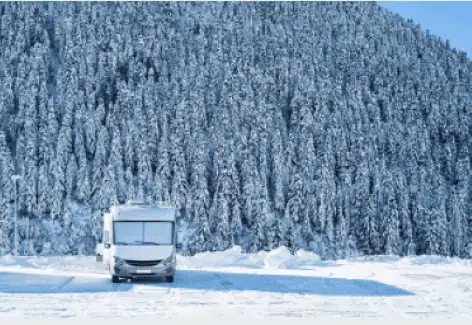
Does cold damage RV battery?
Cold temperatures can indeed affect the performance of both lead-acid and lithium batteries. In cold weather, batteries experience a reduced capacity, making them less efficient at delivering power. The chemical reactions inside the 12v rv battery slow down, resulting in a decrease in overall performance. Cold temperatures can also increase the battery’s internal resistance, making it harder to supply the necessary power. However, once the battery warms up, its performance should return to normal.
Does the cold damage RV battery life?
Cold temperatures alone do not directly damage the life of a battery. However, batteries’ reduced efficiency and performance in cold weather can indirectly affect their lifespan. When a battery consistently operates in suboptimal conditions, it can experience more stress and a shorter lifespan. Therefore, taking precautions and providing adequate maintenance to protect your rv batteries deep cycle during cold weather is essential.
How much cold can a battery withstand?
The ability of a battery to withstand cold temperatures depends on various factors, including its chemistry and construction. Lead-acid batteries, commonly used in RVs, can typically tolerate temperatures down to around -50°C (-58°F) without freezing. However, as mentioned earlier, the charging efficiency decreases significantly at freezing temperatures, so it’s best to charge deep cycle rv battery in warmer conditions.
How do I keep my battery warm in the winter?
To keep your 6 volt rv batteries warm during the winter, consider the following tips:
Insulate the battery compartment.
Ensure the battery compartment is well insulated to minimize exposure to cold air. Use insulation materials or blankets designed explicitly for brava batteries.
Use a battery heater.
Battery heaters are available on the market and can help maintain the optimal temperature for your batteries during cold weather.
Park in a temperature-controlled environment.
Store your camper van in a temperature-controlled environment, such as a heated garage or a covered storage facility.
Keep the batteries charged.
Regularly charge your 12v rv battery during the winter to prevent them from fully discharging, as this can lead to damage in cold temperatures.
Consider battery blankets or heating pads.
Battery blankets or heating pads are specifically designed to provide warmth to batteries in cold weather. They can be wrapped around the camper batteries to keep them at a suitable temperature.
Use a trickle charger.
A trickle charger can help maintain a constant charge in your RV’s batteries during the winter. This continuous low-level charging can prevent the batteries from freezing and ensure they are ready for use.
Avoid prolonged storage in extreme cold.
If you plan to store your RV for an extended period during the winter, consider removing the batteries and storing them in a temperature-controlled environment to prevent damage from freezing temperatures.
Remember, proper maintenance and care during the winter can significantly extend the lifespan and performance of your RV batteries.
Factors That Determine Whether or Not a Battery Will Freeze
Several factors come into play when determining whether a battery will freeze in cold temperatures. These factors include:
The Charge of The Battery
A fully charged 36 volt lithium battery has a lower freezing point than a discharged or partially charged battery. Keeping your batteries adequately charged during cold weather can help prevent freezing.
The Length of The Temperature Drop
Batteries are more likely to freeze if exposed to consistently cold temperatures for an extended period. Sudden temperature drops can also increase the risk of freezing.
Battery Insulation
Proper insulation around the battery can help retain heat and protect it from freezing. Insulating materials and blankets designed for bravabattery can provide additional protection.
Do RVs Come Equipped to Handle Cold Weather?
While RVs are generally designed to withstand various weather conditions, not all RVs come equipped with features specifically designed for cold weather. However, many RVs have insulation in the walls, floors, and roofs to help maintain a comfortable temperature inside. Some RVs also have heated tanks and water lines to prevent freezing.
Suppose you plan on using your RV in cold weather frequently. In that case, it’s worth considering models built explicitly for cold climates or adding aftermarket insulation and heating solutions to ensure optimal comfort and battery performance.
How to take care of your RV batteries over winter?
Take a look at the electrolyte level in each battery and make sure it’s between the levels indicated on the battery case. If it is too high, add distilled water until it is between those lines. It’s important to keep batteries well-maintained because they hold more charge when they are at their recommended levels. Although you should do this every fall before storage, check your battery cables and clean them as necessary. Wipe the terminals with a cloth and store them safely. Your RV battery is an important part of your vehicle, so do everything you can to keep it working properly and ready to go.
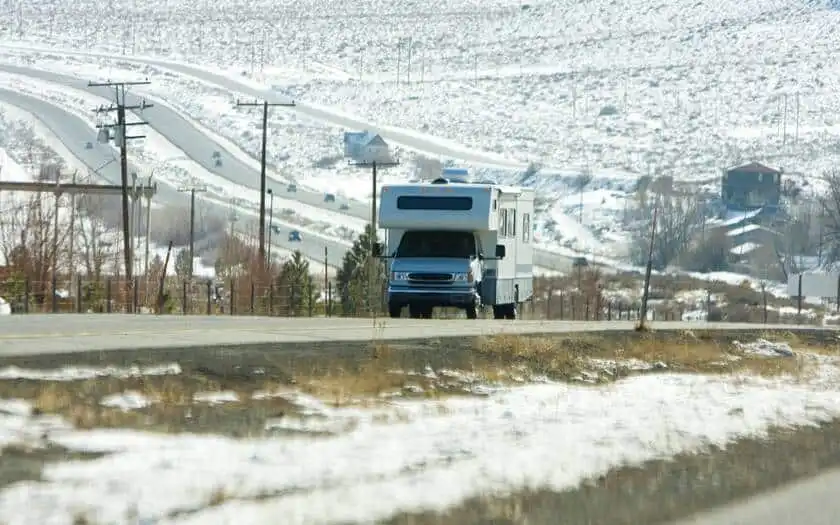
Battery Storage
If you’ll be storing your vehicle over the winter, be sure to set it up to run at least once per month so that your RV batteries are always being charged. Charge each battery separately and make sure that the computers in all of the batteries are programmed accurately before storage.
Cold weather interferes with your RV battery maintenance
You can bring RV batteries indoors before the cold weather sets in, lock them away from direct sunlight, and cover them with blankets or plastic sheets. Batteries that are stored outside will be damaged by winter weather, so it’s best to keep them indoors until spring. Other signs that your batteries need to be taken inside include low voltage when they’re charged and start-up problems when they’re started.
The best time to charge your RV’s batteries
Most battery manufacturers recommend charging batteries at a constant 70 degrees temperature for the best results. If your home isn’t warm enough, bring them inside and use a battery warmer or an RV battery tender. They will keep your batteries at the same level until spring, which will allow you to drive safely in the winter months. Remember that it’s better to have some extra power available during winter than always have an empty battery.
Final Thought
Understanding the impact of cold temperatures on your Brava lithium batteries batteries is crucial for their longevity and performance. While freezing temperatures may not damage lithium batteries, avoiding discharging them in extreme cold conditions is essential. Lead-acid batteries, on the other hand, can experience reduced efficiency and charging capacity in freezing temperatures. Taking proactive measures such as insulation, battery heaters, and regular charging can help protect your batteries during the winter.
Remember to consult your RV manufacturer’s guidelines and recommendations for specific lifepo4 battery care instructions in cold weather. You can enjoy a reliable power source for your RV adventures, even in chilly temperatures, by providing proper maintenance and ensuring your batteries are adequately protected.
Tags: RV Batteries Marine Batteries Dual Purpose RV Batteries RV Batteries Factory Dual purpose RV Batteries Factory

